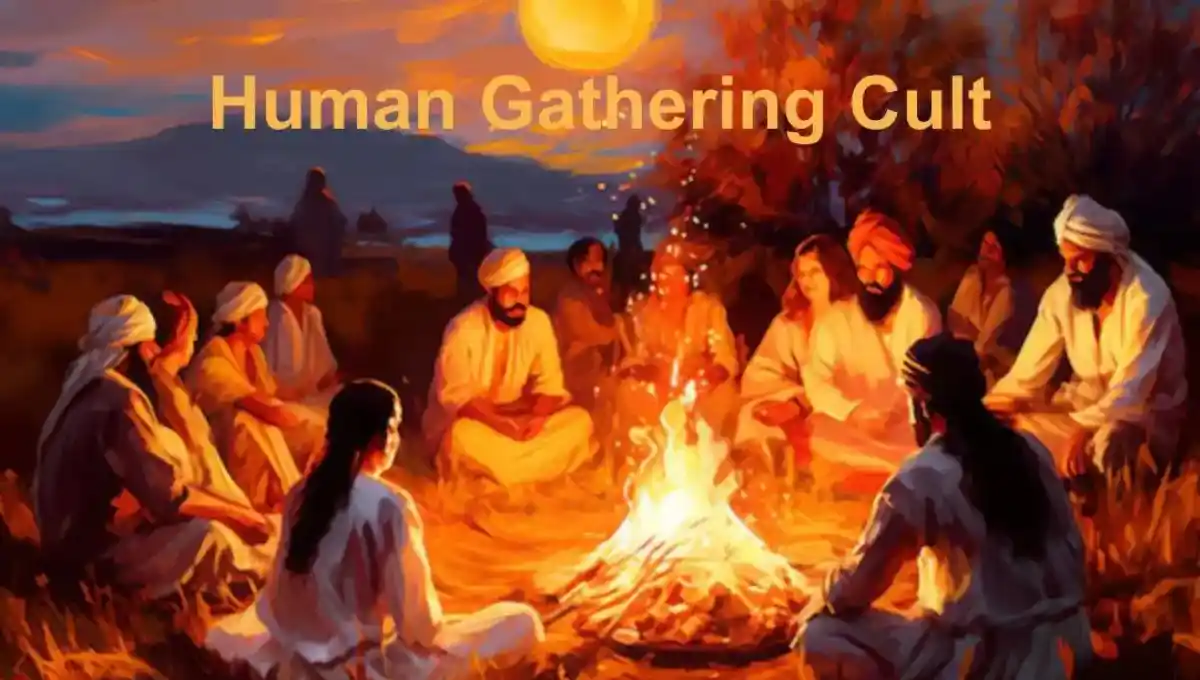Human Gathering Cult is a time period used to explain a mysterious and often debatable group that has attracted interest for its unconventional ideals, secretive practices, and extreme feel of network. The cult’s philosophy revolves around a deeply rooted concept of collective team spirit. Non secular awakening, and from time to time radical societal transformation.
Members of the Human Gathering Cult adhere to a fixed of doctrines which might be both unique and, in lots of cases, shrouded in secrecy, growing an air of mystique around the institution. In this text, we will take a complete examine the center beliefs . Rituals of the Human Gathering Cult, inspecting the methods wherein these practices shape the lives of its fans.
What is a Human Gathering Cult?
A Human Gathering Cult refers to a group or network that centers round a selected set of ideals, practices, and rituals. Regularly with a focal point on collective harmony, religious awakening, or non-public transformation. Such a cult commonly involves an severe sense of belonging among its contributors, in which they proportion a not unusual vision or cause that defines their worldview and conduct. The time period “Human Gathering” shows a sturdy emphasis on communal participation. Where the act of coming together whether or not physically or spiritually is relevant to the cult’s philosophy.
While the exact nature of a Human Gathering Cult can vary, these companies regularly feature charismatic leaders, exclusive teachings, and practices which are saved personal or secret from outsiders. The cult’s shape may prioritize collective identification over individuality. With contributors encouraged to comply with a strict set of guidelines and rituals designed to foster a sense of motive and belonging.
It’s important to note that the term “cult” can convey a negative connotation, as such corporations are from time to time related to manipulative or coercive behaviors. Specifically when they isolate individuals from society or pressure them to comply to severe ideologies. However, now not all businesses labeled as cults have interaction in dangerous practices. A few may also truely have alternative ideals or life that vary considerably from mainstream society. The time period “Human Gathering Cult” can, consequently, consult with a extensive variety of agencies, from notably harmless groups to those with extra extreme or controversial practices.
Core Beliefs and Ideologies
Human Gathering Cults can vary broadly of their beliefs, however they frequently percentage some not unusual ideologies:
Community and Connection: At the heart of those cults is a robust emphasis on fostering human connection. Members believe that collective gatherings enhance non-public and communal nicely-being.
Personal Development: Many Human Gathering Cults sell individual increase and self-development. They might also provide workshops, seminars, or rituals designed to help participants achieve private goals.
Shared Purpose: These organizations regularly unite round a commonplace reason or task. This may want to range from social activism to spiritual enlightenment, relying on the cult’s particular focus.
Practices and Rituals
Human Gathering Cults engage in numerous practices and rituals designed to enhance their beliefs and improve network bonds:
Regular Gatherings: Central to their practice are regular meetings or activities. These gatherings can take numerous paperwork, including social occasions, workshops, or non secular ceremonies.
Rituals and Ceremonies: Many of those cults have their personal set of rituals or ceremonies. These might encompass meditation sessions, institution discussions, or symbolic acts supposed to promote harmony and private boom.
Educational Activities: To assist their members’ improvement, these organizations regularly arrange academic activities. These can include education periods, visitor lectures, or interactive workshops.
Potential Benefits
Being part of a Human Gathering Cult can provide several benefits:
Enhanced Social Support: Members frequently revel in a sturdy experience of network and belonging, which may be precious for private well-being.
Opportunities for Growth: Through diverse sports and teachings, people might also locate opportunities for non-public and professional improvement.
Increased Awareness: Participation in those agencies can cause more attention of social troubles or private demanding situations, encouraging participants to make tremendous modifications.
Potential Risks
While there may be advantages, there are also capacity dangers associated with Human Gathering Cults:
Groupthink: The robust emphasis on collective questioning can every now and then result in a loss of crucial attitude or individual dissent.
Exclusivity: While they sell community, a few businesses may also emerge as insular, discouraging interplay with the ones out of doors the cult.
Financial and Time Commitments: Members may face enormous monetary or time commitments, that can impact their non-public lives or monetary stability.
How to Identify a Human Gathering Cult
If you are considering becoming a member of a Human Gathering Cult, it’s crucial to assess the group’s dynamics:
Transparency: Ensure the organization operates with transparency and openness. Avoid groups which can be secretive approximately their activities or financial subjects.
Autonomy: Be cautious of groups that pressure members to comply or discourage unbiased wondering.
Reputation: Research the institution’s popularity and are seeking feedback from current or former individuals.
Conclusion
In conclusion, the Human Gathering Cult represents a complex and frequently arguable idea, characterized. By using a shared set of beliefs, rituals, and practices that foster a strong sense of community and belonging. While some might also view such corporations as a source of private boom and spiritual achievement, others might also boost worries about the capacity for manipulation, isolation, and intense behaviors.
Understanding the dynamics of the Human Gathering Cult—its ideals, rituals, and the implications for each its members and society. Offers vital insight into the mental and social forces that drive collective conduct. As with any institution or movement, it’s far vital to technique the issue with a balanced angle. Spotting the capacity blessings of community and shared cause at the same time as also remaining vigilant about the dangers of manage and damage.




